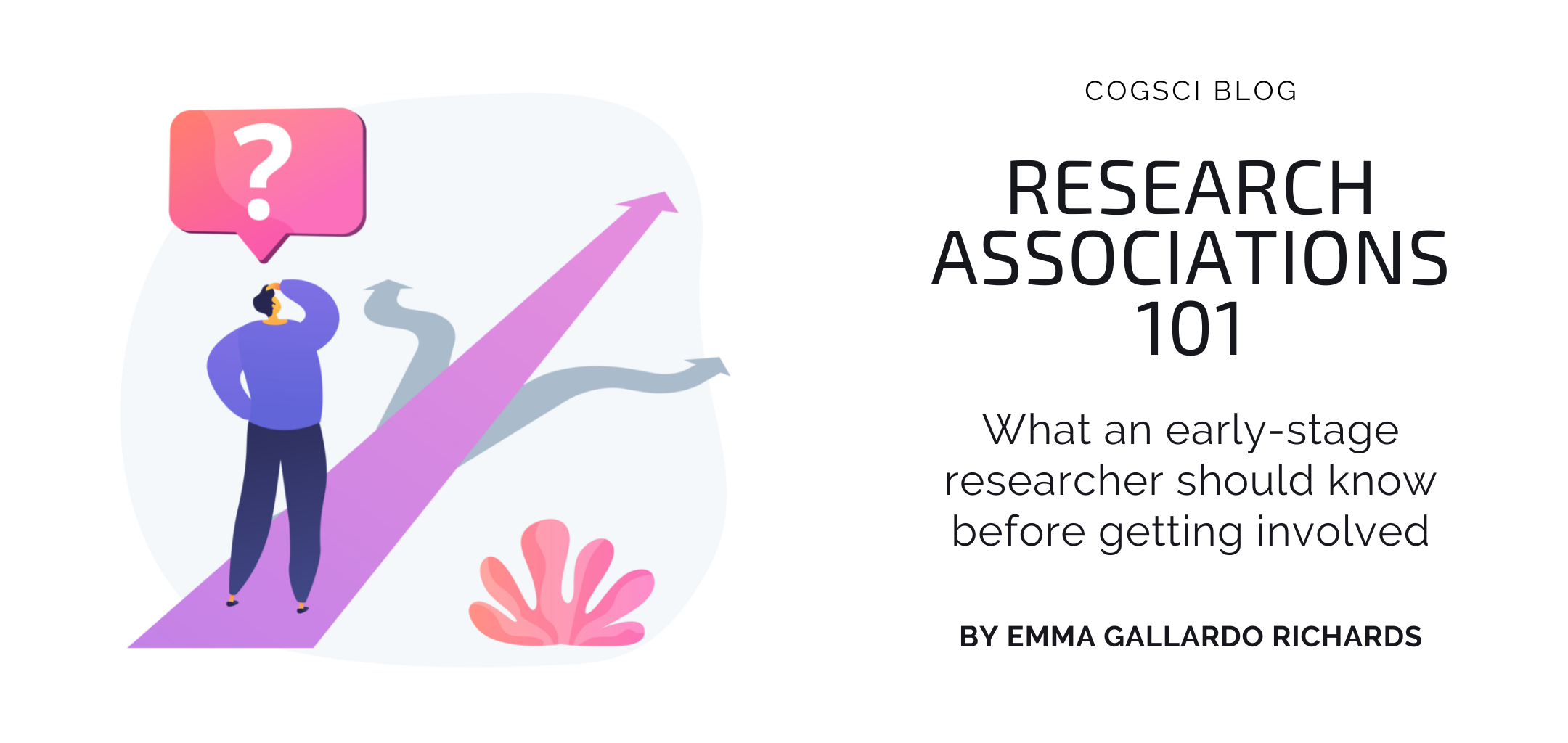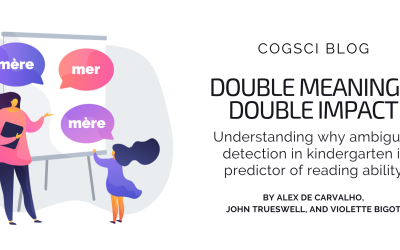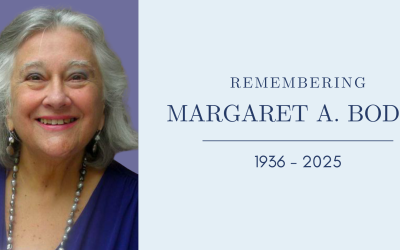As an early-career researcher, you may be dubious just thinking about the responsibility and the workload that being in an association involves. To navigate your own decisions about contributing to a research organization, I’ve gathered a brief guide with six paramount points based on my own experience and knowing how other similar associations focused on linguistics work.
So, who am I and what is my experience based on? In 2019, as my PhD scholarship by the government of Catalonia was granted, I applied to be part of the board of a researchers’ association, specifically, the Association of Young Researchers in Historiography and History of the Spanish Language — in Spanish, Asociación de Jóvenes Investigadores en Historiografía e Historia de la Lengua Española. This organisation was connected to my doctoral research, which focuses on the 19th century schoolbooks that were used in the Catalan education system for teaching Spanish (Gallardo 2019, 2021).
In three years, I have served in several roles on the board: organizing communication and media (2019-2020); vice president (2021), and president (since spring 2022). It is certainly challenging to be the main representative of the association as a whole, but being accompanied by seven other members who believe in the same project and work towards Linguistic historiography and the history of the Spanish language is fulfilling and truly worth it. Alongside this position, in April this year I was also named the representative for this association on the Board of the Spanish Society of Linguistic Historiography — in Spanish, the Sociedad Española de Historiografía Lingüística. Therefore, my involvement in boards covers two sides of the same coin: leading a student-led research association and speaking for young researchers among more experienced members of well established academic societies.
1. Find an association you are interested in and become a member today!
Don’t wait until you are advanced in grad school. Start learning early in your academic journey about research associations or societies aligned with your field of specialisation. Ask your supervisor and other researchers, browse the internet and social media, and pay attention to the proceedings of conferences that are usually organised by research associations. Take into account that some associations are broader than others: While some societies focus on linguistics as a whole discipline – like the Societas linguistica Europaea, the Spanish Linguistic Society, the Brazilian Linguistics Association and many more around the world – others, like the Cognitive Science Society, cover broad fields consisting of many domains. Also, note that some societies are run primarily by students and others by established researchers.
Once you’ve found a good fit you should look for membership information, as in most cases you are asked to be part of the association before being eligible to apply for the roles on the Board. This typically means having to pay a certain fee – which is usually lower for students in grad school. By doing so, you receive some perks, like receiving a newsletter and updated information on scholarships and grants, being eligible for a reduced fee on the conference and academic events organised by the association, being able to attend with a right to vote in the Assembly or having the chance of becoming part of the Governing Board.
2. Get involved in the association and speak out.
Every society will run a bit differently – and it’s worth taking some time to learn more about how to contribute as a member before joining the board. Your society will gather in an annual or bi-annual meeting, which will typically include a business meeting or Assembly, where members can provide input and/or vote on matters regarding the association¹. Your society may also solicit opportunities for student members to contribute to different initiatives.
So, if you wish to eventually play a part on the Board, it seems natural that your first steps are to be active as a member expressing your views, and contributing to the functioning of the society – especially if you are an early career researcher. This is a great chance to get other researchers in your field to know you.
3. Choose the right moment for you to apply for a position.
An important aspect you should consider is when to join the Board. In most Spanish student-led research associations you can stay on the board for a maximum of four years and you generally have to quit your role once your education is complete. Of course, you can run for the position at any moment during your masters or PhD program, but taking into account these constraints may help you make some decisions.
Joining at earlier or later parts of your academic journey can confer different benefits to you and change what you are able to accomplish in the society. Applying for a position towards the beginning stages of your academic journey will help you thrive by building a professional support network outside of your immediate lab and will leave enough time to contribute to leadership roles, which are usually held on a seniority criterion. Another option would be to try to enter the Board towards the middle or last stages of grad school, once you know the ropes of your field and you feel you can make a difference with your ideas, although you may have less time to commit at that stage. Ultimately, it is up to you.
4. Think about why you want to join the Board and how it can help enhance your and others’ PhD experience.
There are many reasons why you would choose to apply for a role on a Board, be it the desire to make a difference in the experience of fellow young researchers during the initial stages of their journey in academia, or to build a space for debate and exchange of ideas on the present and future of your field, or maybe to get to know what an organisation is like and how it works, or even to encourage different initiatives to promote the association to current undergraduate students – like the newly released CogSci Mind Challenge. Undoubtedly, there are many more valid arguments. Just keep in mind that it is not all about prestige or about adding another line of merits to your academic CV. At the end of the day, you are engaging with fellow researchers who work towards the aims of the association.
5. Be aware of the workload and commitment that is required.
Let’s be frank: committing to a position on the Board of a research association means taking on extra work, no matter what role you are assigned. The basic structure is usually composed of a president – who is the chairperson, in charge of leading the association and who supervises all tasks, – a vice president – who supports the president, – a secretary – who deals with administrative formalities and takes minutes of meetings, – and a treasurer – who is responsible for the management of the funds. Additionally, the specificities of the organisation may demand the creation of other roles: like a person in charge of communication or social media or someone who takes care of the planning of the association’s main conference. Associations often have an academic journal, which means that in some cases you may also have the opportunity to take on an editing role.
But don’t panic! Based on my experience, some periods might be more hectic – like the weeks before the main conference, where the Assembly meeting takes place, or the weeks before publishing a new issue of the journal, – but other times are calmer. Also, keep in mind that it all boils down to teamwork, and you are all in the same boat, juggling your own research with the association duties you’ve committed to. If you eventually join a Board, please communicate clearly about your commitments and stay engaged. Disengaged members create a burden for the team – and removes an opportunity for someone else to contribute effectively in your role.
6. Remember: in or out of the Board, you can make a difference to the association.
Even if you don’t get elected in the general election or feel you can’t commit to a role, thinking you have no time to spare – which is understandable – don’t forget you can still voice all your opinions and concerns!
So, after having explained some of the ins and outs of what joining a Board entails, would I recommend it? Absolutely. I have developed skills that support my future career – such as leadership, teamwork, and communication abilities that would have been difficult to gain in my PhD program. My doctoral experience has been largely solitary and I have spent many months alone at archives reviewing 19th century documents, so teamwork has been a breath of fresh air. To conclude, I would like to stress the importance of the human side of the Board: I have had the chance to work with many young colleagues who have taught me different ways of working and tackling different issues and with whom I have established close friendships.
1. Based on my experience on Spanish associations, the Assembly – composed by all the regular members – is the highest instance of power and all decisions made by the Board have to be approved. In some societies, only Board members can vote.
References
Gallardo Richards, E. (2019). Un hito en la enseñanza del castellano en la Cataluña decimonónica: El auxiliar del maestro catalán (1869-1925) de Salvador Genís i Bech. Revista argentina de historiografía lingüística, 11(2), 103-126.
Gallardo Richards, E. (2021). L’ensenyament del castellà a Catalunya a través de la premsa: els articles pedagògics del mestre gironí Salvador Genís i Bech (1841-1919). Anuari de filologia. Estudis de lingüística, 11, 107-123.




